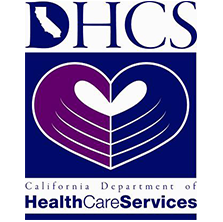California’s #1 Substance Abuse & Mental Health Treatment Center
Leaders In The Treatment Industry Since 1993
Safe Harbor Has Been Committed To Helping Those In Need For 30+ Years.
Deciding To get help and enter a California drug and alcohol addiction treatment center is a courageous and powerful choice. Realizing it’s time for help puts you in the best position for a successful recovery. Full recovery is possible with the right help and finding the best rehab facility will boost the chances of reaching a healthy and successful outcome. The approach at our drug and alcohol rehab in California utilizes a variety of holistic and traditional methods to target any area of your life that does not coincide with the path to wellness. We aim to get to the underlying root of the problem and provide the skills and tools needed to regain control of your life. Contact us today at the Safe Harbor Treatment Center to speak with one of our Treatment Consultants for assistance.
Our mission
Our primary purpose is to offer an environment of love and healing that supports individuals in transformation and a life of wholeness. Our community provides a platform for the understanding that each individual is an essential and necessary expression of life and will hold strong to the values of empathy, connection, and unconditional love.
Our Vision
Our therapeutic program offers services to restore spiritual well-being and enhance physical and mental health. We empower individuals in realizing their value, worthiness, and capacity to live a life of fulfillment. Through love and encouragement, we invite growth and expansion. We aim to heal the whole person- mind, body, and spirit to recover from more than just addiction.
Our Pledge
We, the Individuals of Safe Harbor Treatment Center, pledge to unconditionally love and support each other from the moment we pass through the doors of Safe Harbor, and forever as alumni. We will build each other up as friends and as warriors battling addiction. We pledge to always provide a space of trust and acceptance, where we are free from shame, judgment, and societal pressures.
WHO WE ARE
WHat we offer
THE EXPERIENCE
At Safe Harbor Treatment Center, we offer different levels of care to fit the needs of our clients:
Medical Drug & Alcohol Detox

Sub-acute medical detox is a type of medication-assisted detox for treating dependence to substances.
Inpatient Addiction Treatment

Inpatient treatment provides a high level of structure, supervision, and support in the early weeks of recovery.
Aftercare Services

An aftercare plan is a comprehensive, individualized plan that’s set in place once treatment is complete.
Why Is Safe Harbor The Place For You?
Individualized Care For You or a Loved One
Deciding to get help and enter a California drug and alcohol addiction treatment center is a courageous and powerful choice. Realizing it’s time for help puts you in the best position for a successful recovery.
The approach at our drug and alcohol rehab in California utilizes a variety of holistic and traditional methods to target any area of your life that does not coincide with the path to wellness.
We aim to get to the underlying root of the problem and provide the skills and tools needed to regain control of your life.
insurance
MOST INSURANCES ACCEPTED
Does Your Insurance Cover Rehab?








